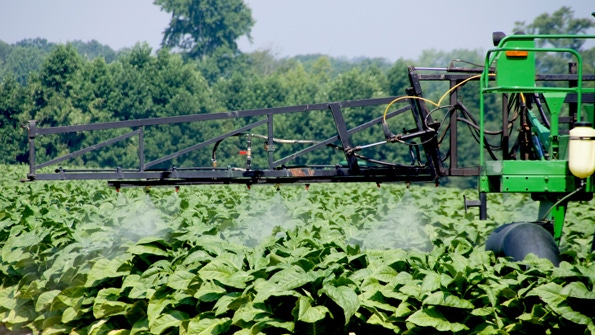Customers told there will be enough chlorpyrifos supply to cover current demand through end of year.

All sales of chlorpyrifos products to growers in California were scheduled to end on Feb. 6, 2020, and Corteva Agriscience said due to reduced demand for the product, it will completely phase out production of chlorpyrifos in 2020.
Last fall, the California Environmental Protection Agency announced that virtually all use of the pesticide chlorpyrifos in California will end at the end of 2020 following an agreement between the Department of Pesticide Regulation (DPR) and pesticide manufacturers to withdraw their products. The agreement avoided a protracted legal process while providing a clear timeline for California farmers who agreed to no longer possess or use chlorpyrifos products in California after Dec. 31, 2020.
Chlorpyrifos is used to control pests on a variety of crops, including alfalfa, almonds, citrus, cotton, grapes and walnuts. It has declined in use over the past decade as California growers have shifted to safer alternatives. DPR said in a statement use of the pesticide dropped more than 50% -- from 2 million lb. in 2005 to just over 940,000 lb. in 2017.
In a statement, Corteva said demand for chlorpyrifos has declined significantly over the last two decades, particularly in the U.S.
“Due to this reduced demand, Corteva has made the strategic business decision to phase out our production of chlorpyrifos in 2020. We are committed to continuing to support our farmers and invest in products they need. Our customers will have access to enough chlorpyrifos supply to cover current demand through the end of the year while they transition to other products or other providers. Our customers, shareholders and employees will benefit by redeploying our resources,” Corteva external communications spokesman Gregg Schmidt said in a statement.
The development of safe, more sustainable alternatives to chlorpyrifos is being supported through the current California state budget, which appropriates more than $5 million in grant funding for the purpose. DPR will award more than $2.1 million in grants to fund projects that identify, develop and implement safer, practical and sustainable pest management alternatives to chlorpyrifos.
Jason Davidson, food and agriculture campaigner with Friends of the Earth, said it was encouraging to see Corteva take steps to remove the pesticide from the market. “We applaud Hawaii, California and New York for banning this harmful pesticide and urge other states and federal legislators to follow their lead. We must ensure that children, farmworkers and communities everywhere are safe from chlorpyrifos,” Davidson said in a statement.
About the Author(s)
You May Also Like





